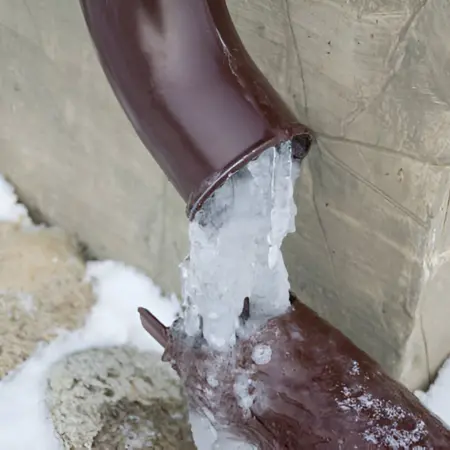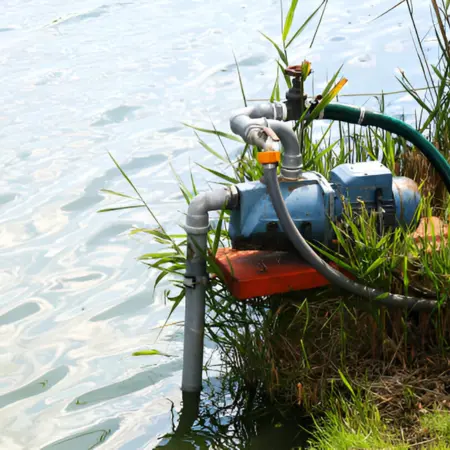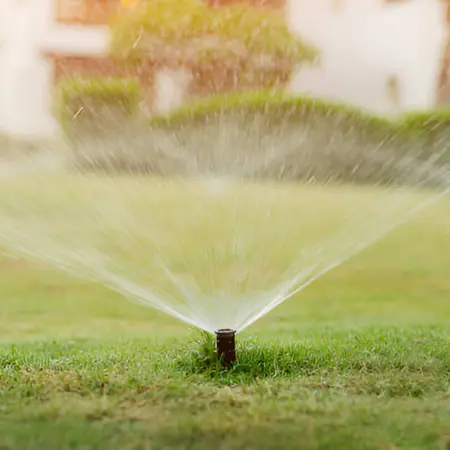As the seasons change, so do the needs of your plumbing system.
From icy winters to rainy falls, each season brings unique challenges.
Preparing your pipes and fixtures can save you time, money, and headaches.
Explore how to keep your plumbing in top shape all year round.
Key Takeaways
- Frequently look for water stains and damp areas on your walls and ceilings.
- After winter, inspect your plumbing for any damage caused by freezing temperatures.
- Sump pumps remove extra water from basements.
- Prepare your home for summer by checking your water usage and inspecting your pipes.
- Don’t put grease, food scraps, and other waste down the drain to prevent clogs.
- Water your plants in the morning or evening to minimize evaporation.
- Create a list of fall plumbing tasks, like checking for leaks and clearing all drains.
Winter Preparation For Your Plumbing System
Prepare your plumbing for winter by following these:
1. Insulating (Covering) Pipes
Insulating your pipes is vital in winter.
It helps keep the water in your pipes warm, preventing freezing and possible bursts.
Proper insulation can also save energy and reduce heating costs.
A. Types Of Insulation Materials
There are several types of insulation materials you can use:
- Foam Pipe Insulation: Easy to install and effective at keeping pipes warm.
- Fiberglass Insulation: Great for larger pipes but can be a bit more complicated to apply.
- Heat Tape: An electric option that wraps around pipes and warms them up.

B. Steps To Insulate Exposed Pipes
- Identify exposed pipes, especially in unheated areas like basements.
- Clean the pipes to remove any dirt and dust.
- Cut the insulation material to the right length.
- Wrap the insulation around the pipes and secure it with tape or ties.
- Make sure there are no gaps where cold air can get in.
2. Preventing Frozen Pipes
Look for these signs that your pipes might freeze:
- Water pressure drops suddenly.
- Frost appears on the outside of the pipes.
- Strange noises coming from the pipes.
A. Tips For Keeping Pipes Warm
Let your faucets drip slightly, which can prevent freezing by keeping water flowing.
Open cabinet doors under sinks to allow warm air to circulate the pipes.
Use heat tape on particularly at-risk pipes to provide extra warmth.
Here’s what to do if a pipe freezes:
- Turn off the water supply suddenly to prevent bursting.
- Apply heat gently with a hairdryer or heating pad, starting at the faucet end.
- Never use an open flame to defrost pipes.
- If you can’t melt it yourself, call a plumber for help.
3. Checking For Leaks
During winter, watch for leaks in:
- Pipe joints and fittings.
- Areas where pipes pass through walls and ceilings.
- Connections to fixtures like sinks and toilets.
Here’s how to detect and fix leaks early:
- Visual Inspection: Regularly check for water stains and damp spots on walls and ceilings.
- Listen: Pay attention to dripping or running water sounds.
- Use A Meter: If you notice higher water bills without explanation, check your water meter for leaks.
If you find a leak:
- Turn off the water supply to that section.
- Tighten loose fittings or apply the plumber’s tape to the joints.
- For larger leaks, it’s best to call a plumber for a proper repair.
Spring Preparation For Your Plumbing System
After winter, check your plumbing for any damage from freezing temperatures.
Start by checking pipes in unheated areas like basements.
Here’s what to look for:
- Cracks Or Breaks: Look for any visible cracks in pipes, especially plastic ones.
- Leaking Fixtures: Check faucets and toilets for leaks.
- Water Stains: Look for water stains on walls and ceilings, which could show a hidden leak.
1. Clearing Drainage Systems
Clearing your gutters and downspouts is essential in spring.
This helps stop water from pooling around your foundation and lowers the risk of flooding.
Here are the steps for cleaning outdoor drains:
- Remove Debris: Clear leaves, branches, and dirt from gutters and downspouts.
- Flush With Water: Use a hose to flush out any remaining debris in the gutters and drains.
- Check Drains: Inspect outdoor drains for blockages and clean them if needed.
2. Importance Of Sump Pump In Spring
Sump pumps help remove excess water from basements.
They prevent flooding, especially during spring rains.
It’s important to ensure they are working properly.

Here’s how to maintain sump pumps:
- Check The Power Supply: Make sure the pump is plugged in and the exit works.
- Test The Pump: Pour a bucket of water into the sump pit to see if the pump turns on and drains the water.
- Clean The Pump: Remove any debris from the sump pit and ensure the pump is free of dirt.
Summer Preparation For Your Plumbing System
Prepare your home for summer by checking your water usage and inspecting your hoses.
Also, make sure to keep your drains clear.
1. Monitor Water Usage
Keep an eye on how much water you use to save money and help the environment.
Here are some tips for conserving water:
- Water Early Or Late: Water your plants early morning or evening to reduce evaporation.
- Use Mulch (Fertilize): Apply mulch around plants to keep moisture and reduce the need for watering.
- Limit Lawn Watering: Only water your lawn when necessary, aiming for once or twice a week.
- Fix Leaks: Check for and repair any leaks in faucets and hoses to prevent wasting water.
How To Spot Unusual Water Usage Patterns
- Compare your current water bill with previous months to see if there’s an increase.
- Notice any spots in your yard that stay wet, which might show a leak.
- Check your water meter regularly; if it’s running while no water is being used, there may be a leak.
2. Check Sprinkler Systems
Make sure your sprinklers are working properly so your plants get enough water.
Here’s how to inspect and maintain the sprinkler system:
- Inspect Sprinkler Heads: Check for clogs and clean them if needed. Make sure they are protected from grass or dirt.
- Test System Operation: Run the system to see if all zones function properly. Adjust any heads that need to.
- Check Timers And Sensors: Ensure the timer settings are correct and the rain sensors are working to prevent watering during rain.
3. Preventing Clogs
Avoid putting grease, food scraps, and other waste down the drain to prevent clogs.
Here’s how to avoid clogs from increased water usage:
- Limit Use Of Garbage Disposal: During summer, try to reduce food waste in the disposal, which can lead to clogs.
- Rinse Garden Tools Outside: Instead of rinsing dirt from tools in the sink, wash them outside to keep dirt from entering your plumbing.

Tips For Keeping Drains Clear
- Install screens over drains to catch hair and debris.
- Regularly flush drains with hot water to help break down any build-up.
- Never pour grease down the sink; collect it in a container and throw it away.
Fall Preparation For Your Plumbing System
Get ready for fall by checking your home’s insulation and protecting pipes from freezing.
Also, make sure your heating system works well.
Here’s how to prepare for freezing temperatures:
- Check Insulation: Ensure your home’s insulation is good to keep the cold out.
- Protect Pipes: Wrap any exposed pipes to prevent freezing.
- Drain Hoses (Pipes): Empty outdoor hoses and fixtures to avoid damage from freezing water.
1. Inspect Heating Systems
Ensure your water heater is working well and set to a proper temperature.
Clean and inspect your heating system, like changing filters and checking for any issues.
2. Fall Plumbing Checklist
Make a list of fall plumbing tasks, such as checking for leaks and ensuring all drains are clear.
It’s smart to have a professional check your plumbing before winter to avoid surprises.
Conclusion
This article talks about how to prepare your plumbing system for each season.
Regular checks and maintenance can keep everything running smoothly.
Stay proactive, and your home will stay safe and comfortable year-round. Contact us at OP Plumbing Hub for expert services.
